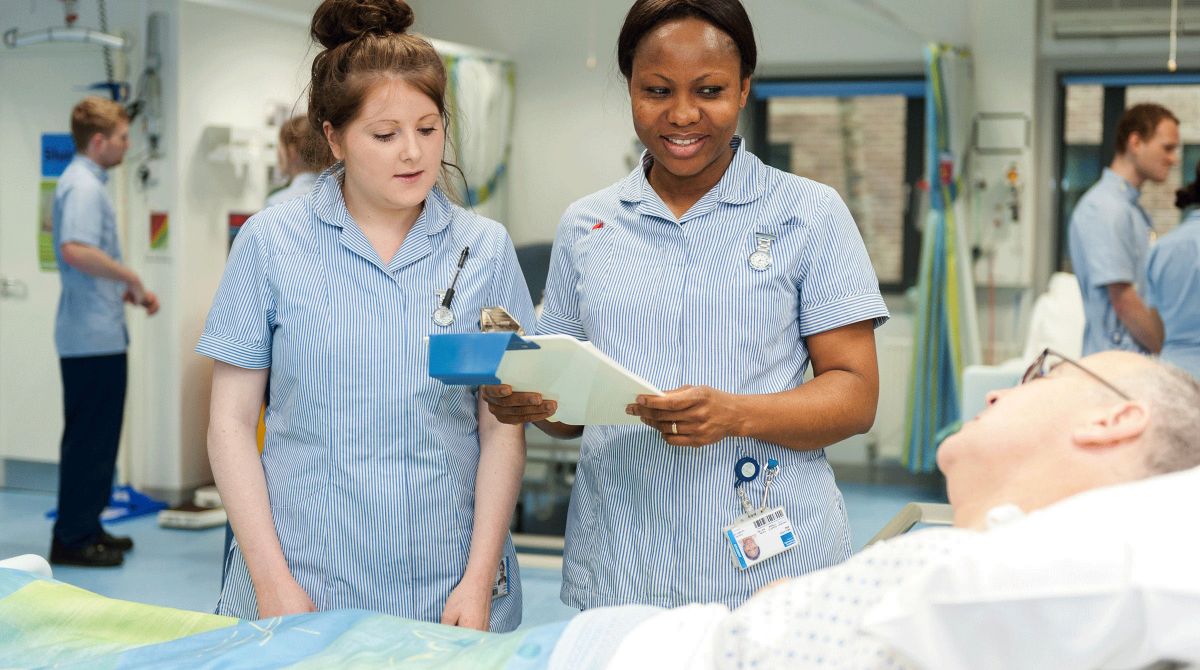Reintroduction of Government grants for student nurses is step in right direction but more must be done, Kingston University expert says
Posted Wednesday 18 December 2019

The British Government's decision to reintroduce grants for aspiring nurses studying at university will increase the talent pool and allow students to enjoy learning with less anxiety around financial pressures, according to the head of nursing at Kingston University and St George's, University of London.
Dr Julia Gale cautiously welcomed the announcement, which will see new and current students receive £5,000 a year from September 2020 – and those undertaking courses in harder to recruit to areas such as mental health and learning disability nursing receiving £8,000. Dr Gale said the funding would help with the much needed recruitment and retention of student nurses and midwives. Head of Kingston University's School of Nursing Dr Julia Gale feels the announcement is a step in the right direction but more still must be done.
Head of Kingston University's School of Nursing Dr Julia Gale feels the announcement is a step in the right direction but more still must be done.
"This is really good news, particularly for students in London, as we all know the cost of living here is high. But hopefully this news will attract more students in to the profession and will help take away some of the worries and stress around finances. With less financial pressure, students should get even more enjoyment from learning to become a nurse," Dr Gale said.
Maintenance grants for student nurses and midwives were removed by the Government in 2017. The new funding comes as the part of Conservative Party's pledge to increase the number of nurses by 50,000 over the next five years. Yet although Dr Gale is encouraged by the announcement, she said more must be done. "Ideally the government would scrap the student loan system altogether and go back to offering full bursaries, so students are not embarking on their nursing careers in debt – but recognising where we have been in the last two years, this is a big step in the right direction," she said.
Dr Gale also believes more needs to be done once students have qualified to help keep them in the NHS. "The money will make a big difference but will only help them get over that first hurdle, through the gate and qualified. We need to make sure we retain and harness this talent once they go in to the NHS so the next step is looking at what incentives can be given to keep them in our health service," she said.
Dr Gale was also encouraged by the extra money that will be offered to mental health and learning disability nursing students. "These specialist areas of nursing have had dwindling applicants across the country and desperately need more qualified staff. The further £3,000 students on these courses will get will substantially increase their quality of living and learning," she said.
Dr Gale said the talent was out there, and the challenges recruiting students onto nursing and midwifery courses were not due to a lack of people wanting to join the professions, but rather because of anxieties around whether they could afford it. "I really hope this announcement will encourage prospective students to apply for nursing and midwifery courses and enhance our already amazing National Health Service." she added.
- Find out more about studying to become a nurse or midwife at Kingston University and St George's, University of London.
Contact us
General enquiries:
Journalists only:
- Communications team
Tel: +44 (0)20 8417 3034
Email us



